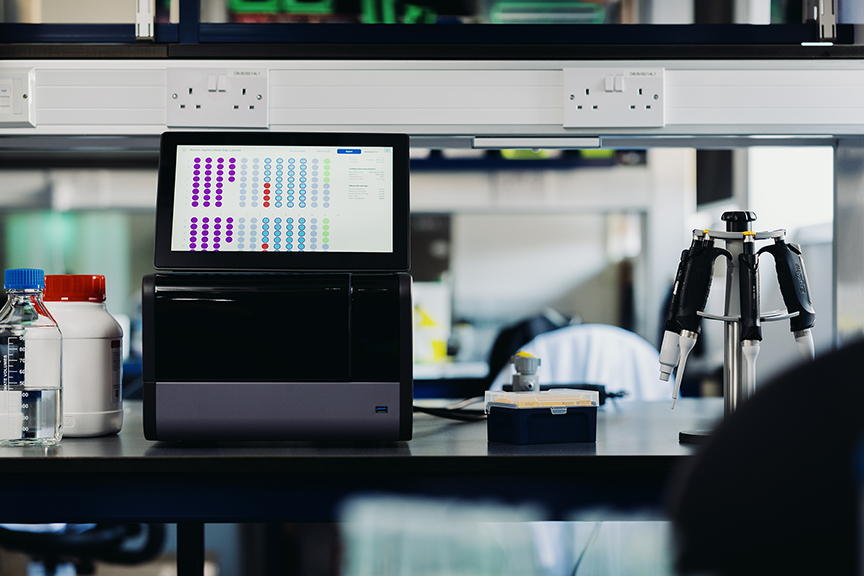A spin-out company from the U.K.’s University of Cambridge is poised to launch a benchtop tool called Amperia for atline protein and viral particle analysis. The instrument aims to reduce the dependence of universities, biotech, pharmaceutical, and other companies on centralized laboratories for analytics during process development or manufacturing.
According to Ruizhi Wang, PhD, co-founder and CEO of Abselion, relying on such labs can slow down process development as it can take up to two weeks to return results.
“Even if you only have a one-day turnaround time, it’s difficult to do a quick process analysis,” he explains. “If you have a twenty-step process for developing viral particles, you may have to go through all twenty steps [before you can run the analytical tests in a centralized lab only to] discover step two didn’t work.”
In contrast, Amperia is designed to be robust, affordable, easy to use by non-specialists, and able to deal with crude samples, continues Wang, adding that “if you need to purify [samples], you need a fully outfitted lab.”
Electricity for measurement
The instrument, which was discussed at a Dragon’s Den session at bioProcessUK, differs from established technologies, notes Wang, because it uses electricity for measurement rather than the absorption or defraction of light.
“These established instruments are fantastic, precise and accurate,” he says. “But they’re sensitive to vibration and, because they use lots of specialized optical components, they can be expensive and need a lot of maintenance.”
In addition, he points out, techniques such as Raman spectroscopy struggle to deal with samples containing a mixture of proteins and viral particles.

The promising technology, which was developed in the electrical engineering department of Cambridge University, uses small probes—around a centimeter long and a millimeter wide—which can be dipped into liquids in a 96-well plate. The instrument can be used to run assays by measuring electrochemical changes at the tip of the probe.
Abselion has been running pilot projects since summer 2023, including on a rental basis, with the aim to market the product commercially by April 2024.
Going forward, the company hopes to widen the applications of their product to a range of viral particles and to build their name with prospective customers across academia, big pharma, biotech, and contract manufacturing.


